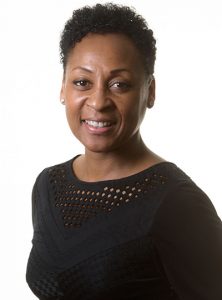According to Catherine Ross, editor of www.blackhistorymonth.org.uk, it is also about celebrating the “here and now” and Graysons would like to take this opportunity to acknowledge its partner and head of the clinical negligence team, Carol Simpson.
Started career as a midwife
Carol started her career in medicine, as a nurse and midwife with the NHS, where she worked for 19 years before qualifying as a solicitor. It is this former profession that led to her knowing instinctively that she wanted to act for vulnerable individuals and families who had suffered a serious injury as a result of medical negligence. This background has provided invaluable experience for her in her work in the field of medical/clinical negligence.
Carol obtained her law degree from Huddersfield University and qualified as a solicitor in 2004. She has 16 years’ experience acting for claimants on a variety of high-value cases including, but not limited, to amputations, spinal injuries, orthopaedic, paediatric and birth injury claims. She is passionate about what she does, has a common-sense approach and works extremely hard to achieve a successful outcome for her clients. Knowing the legal and medical jargon certainly helps, but Carol is particularly accomplished at explaining details in simple terms to clients, allowing them to fully understand the aspects of their claim and ensuring their involvement throughout.
“Tenacious’ and “not daunted by a difficult case”
Carol joined Graysons in October 2018 as head of its medical negligence team and quickly rose to partner in December 2019. She has been personally recommended in the Legal 500 for several years, being described as “tenacious”, an “experienced and effective litigator” and “not daunted by a difficult case”. She is also an AvMA (Action Against Medical Accidents) approved solicitor, having been assessed and accredited as a specialist in clinical negligence.
Carol says:
“My parents came to this country from Jamaica in the 1960s. They worked hard, instilling good morals and values. They set the bar high for all their children. No matter what your background, if you have a goal, a good work ethic and believe in yourself, you can achieve and accomplish your dreams”.
When asking Carol which role model she would like to remember during Black History Month, she can mention many. For example, Professor Jacqueline Dunkley-Bent OBE who was appointed to the NHS’ new role of Senior Midwife last year, or Ghanaian-born Judge Barbara Mensah who became the first circuit judge of African origin in England and Wales in 2005. However, it is another medical woman, Mary Seacole, who Carol says deserves particular acclaim.
Carol’s role model during Black History Month
Mary was born in Jamaica over 200 years ago when many black people were born into slavery. She, however, was born a free person, of a black mother and a Scottish army officer father. Her mother was a healer, and an African “doctress” and Mary learned many skills from her. When Mary was 15 years old she lived with relatives in England for about a year where she supplemented her knowledge of traditional Caribbean healing by learning about modern European medicine. Two years later, she moved to London where she stayed for about two years before moving on to Cuba, Haiti and the Bahamas and then returning to London to nurse her patroness during a long illness. Mary married in 1836. Her husband became ill and she nursed him until his death in 1844. Her mother also died shortly afterwards.
Crimean War nurse
From there, Mary nursed the victims of the Kingston cholera epidemic and yellow fever. When the Crimean War started in 1853, she asked the British War Office to send her to the Crimea as an army nurse, but it refused. Mary went there under her own steam and set up the British Hotel near Balaclava, where she tended sick and recovering soldiers. She even visited the battlefield to tend wounded soldiers. As famous as Florence Nightingale at the time, Mary became known as Mother Seacole.
Mary never officially qualified as a nurse and came back to Britain with very little money. She was highly praised by many, including the Times war correspondent of the day and members of the Royal family. A fundraising event that saw over 80,000 attendees allowed her to continue her life and to write her autobiography, The Wonderful Adventures of Mrs Seacole in Many Lands. It became a bestseller instantly.
Statue to commemorate Mary Seacole
Mary was then forgotten for many years, but around 100 years after her death in 1881, following a visit to her grave by Caribbean nurses, the local MP (now Lord Clive Soley) said he would raise money for a statue to be erected in her honour, which he did. Mary was voted the Greatest Black Briton in 2004 and the statue was unveiled at St Thomas’ Hospital in 2016.
Mary’s great values of always wanting to help the sick and injured and of achievement, mirror Carol’s values well. It is unsurprising that Carol holds Mary in such high esteem – it is well deserved. You can read more about Mary and her life at www.maryseacoletrust.org.uk

